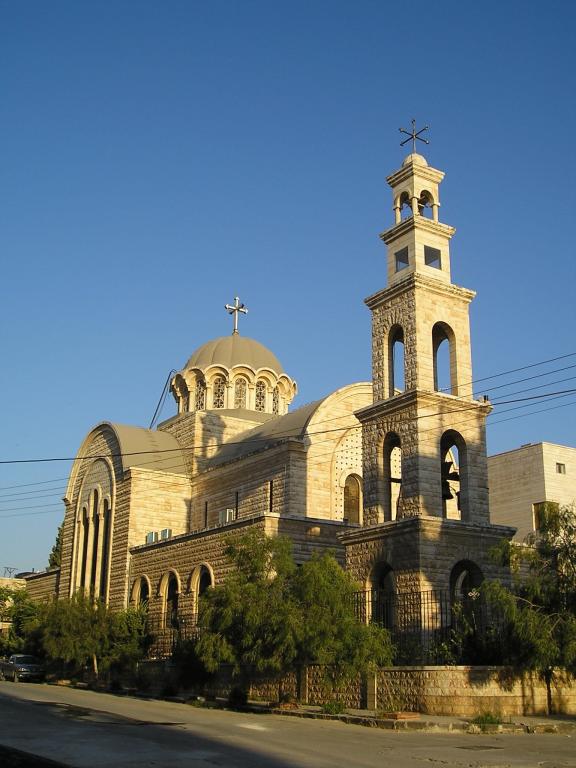
(Wikimedia Commons public domain)
After those prophets We sent forth Jesus, the son of Mary, confirming the Torah already revealed, and gave him the gospel, in which there is guidance and light, corroborating that which was revealed before it in the Torah, a guide and an admonition to the righteous.[1]
According to the Qur’an, Jesus came as a messenger to confirm that which had gone before and to restore to the earth the pure truth that had been lost through sin and rebellion. However, the long-term prospects for his own dispensation were known to be poor, since he also foretold the coming of a messenger whose name would be Ahmad and who would serve as the final restorer of the truth.[2] In fact, Muslims claim, Muhammad—for that is the more common name of Ahmad, built off of the same three-letter Arabic root (hmd, connected with the idea of “praise”)—was foretold in both the Torah and the gospel.[3]
And, again according to the Qur’an, Christianity did not long remain pure. Monasticism, for instance, was a human invention for which God revealed no authority.[4] “With those who said they were Christians We made a covenant also, but they too have forgotten much of what they were enjoined.”[5] Nevertheless, it can be argued that the Qur’an shows a clear preference for Christians over Jews, or, at least, for Christianity over Judaism.[6] The Qur’an expresses admiration for Christianity at several places. God’s light is found, it says, in Christian churches,
in temples God has allowed to be raised up,
and His Name to be commemorated therein;
therein glorifying Him, in the mornings and the evenings, are men whom neither commerce nor trafficking
diverts from the remembrance of God
and to perform the prayer, and to pay the alms.[7]
Still, it was necessary and foreseen that a final messenger would have to be sent to bring the truth to the earth one final time before the consummation of all things. And it was fitting that, as the hanifs had begged, this final messenger was sent to a people who had never yet had the privilege of entertaining a messenger of God. Muhammad, as depicted in the Qur’an, is a messenger sent forth “among the gentiles.”[8] Yet the Qur’an points out that each messenger that God has sent has spoken only in the language of his own people, so that he might make his message plain to them. The similarity of this principle to the teachings of Joseph Smith is manifest. One might paraphrase it and say without distortion that “these commandments . . . were given unto [God’s] servants in their weakness, after the manner of their language, that they might come to understanding.”[9]
We have sent you forth as a blessing from your Lord to forewarn a nation to whom no Messenger has been sent before, so that they may take heed and may not say, when evil befalls them on account of their misdeeds: “Lord, had You sent us a Messenger, we should have obeyed Your revelations and believed in them.”[10]
Muhammad’s calling, as had been the case with earlier messengers from God, was simply to warn; he was not responsible for the people’s response.[11] This was the same principle that had motivated Paul’s farewell speech to the elders of the church at Ephesus centuries before:
And now, behold, I know that ye all, among whom I have gone preaching the kingdom of God, shall see my face no more. Wherefore I take you to record this day, that I am pure from the blood of all men. For I have not shunned to declare unto you all the counsel of God.[12]
It was also a principle revealed to Moroni, and it was the subject of Hyrum Smith’s reflections just before he met martyrdom with his brother at the hands of a vicious mob.
And it came to pass that I prayed unto the Lord that he would give unto the Gentiles grace, that they might have charity. And it came to pass that the Lord said unto me: If they have not charity it mattereth not unto thee, thou hast been faithful; wherefore thy garments shall be made clean. . . . And now I [Moroni] bid farewell unto the Gentiles; yea, and also unto my brethren whom I love, until we shall meet before the judgment-seat of Christ, where all men shall know that my garments are not spotted with your blood.[13]
Muhammad was directed to announce to the people of Arabia that “Truth has come. Falsehood has vanished and shall return no more.”[14] This was the last dispensation. There would never be another complete apostasy, and no complete restoration would ever be required again. Muhammad, thus, was the “seal of the prophets.”[15]
[1] 5:46.
[2] 61:6.
[3] 7:157. Some Muslim apologists claim, for example, that, instead of Greek parakletos (“Comforter”), John 14:16 should read periklytos (“much praised”). There is, however, no textual evidence to support this idea.
[4] 57:27.
[5] 5:14.
[6] 5:82-85. This is slightly surprising, since it can be argued that Islam is actually closer theologically to Judaism than to Christianity.
[7] 24:36-37.
[8] 62:2. This is Dawood’s rendition. The phrase could also be interpreted to mean that Muhammad was sent forth “among the unlettered,” or “among the common people.” I like Dawood’s translation on this point because it discloses a parallel with Joseph Smith.
[9] 14:4. Compare Doctrine and Covenants 1:24.
[10] 28:47.
[11] 88:21-22, etc.
[12] Acts 20:25-27
[13] Doctrine and Covenants 135:5. Perhaps the most eloquent statement of this principle is to be found at Ezekiel 33:1-9, 11.
[14] 34:49. Dawood’s translation here is a bit loose, perhaps, but I like it.
[15] 33:40.












